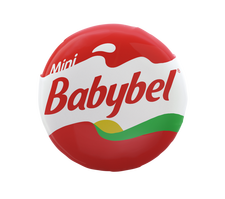Note: both of the below Lisp implementations are currently in progress.
Babybel is Ruby gem containing two Lisp implementations:
- Bel as described in the spec by Paul Graham. Status: non-functional.
- Minibel, a Bel-inspired Lisp tightly integrated with the Ruby object system and runtime. Status: barely functional.
In both cases, see the included specs describe the implementation.
Add this line to your application's Gemfile:
gem 'babybel'And then execute:
$ bundle install
Or install it yourself as:
$ gem install babybel
Both of the in-progress Lisp implementations are built in Ruby and are interpreted. The excellent Parslet library provides the tooling for creating the parser grammar and transformation to an S-expression format used to build the interpreter.
Eventually, the gem will provide one or more CLI tools for executing the Babybel and Minibel Lisps. For now though, it needs to be embedded as a library.
require 'babybel'
bel_file = File.read('my/program.bel')
result = Babybel::Minibel::Interpreter.new.evaluate(bel_file)Only the Minibel implementation is far enough along to use today as shown above.
Other than Bel itself, see the following:
- Flea: https://github.com/aarongough/flea
- Parslet Minilisp Example: https://github.com/kschiess/parslet/blob/master/example/minilisp.rb
- Hy: https://docs.hylang.org/en/stable/index.html
Check out this doc as well for lots more links!
After checking out the repo, run bin/setup to install dependencies. Then, run bin/rspec to run the tests. You can also run bin/console for an interactive prompt that will allow you to experiment.
To install this gem onto your local machine, run bin/rake install. To release a new version, update the version number in version.rb, and then run bin/rake release, which will create a git tag for the version, push git commits and tags, and push the .gem file to rubygems.org.
Bug reports and pull requests are welcome on GitHub at https://github.com/cookrn/babybel.
Obviously, no ownership, rights, copyright, or trademark of the Babybel name or logo were obtained or are implied with this project. Lisp is not cheese.
The gem is available as open source under the terms of the MIT License.
